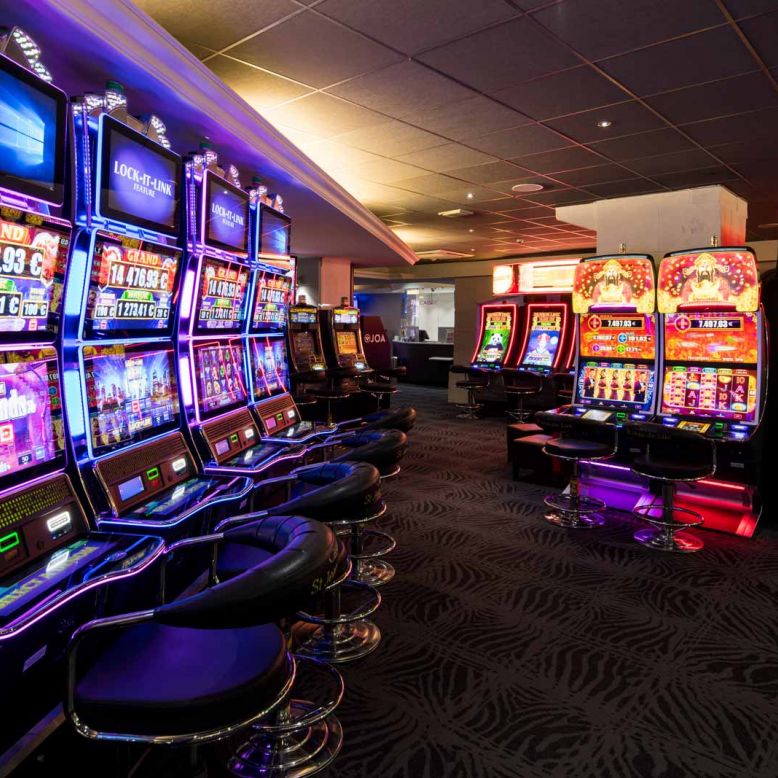
Gambling has been an integral part of human recreation for millions of years, developing through societies and periods to become the vibrant casino games we know today. From the historical Chinese and Romans, who participated in different forms of gambling and chance, to the modern gaming floors of contemporary casinos, the attraction of risk and winning has captivated individuals across the globe. The change from basic dice games and rudimentary betting setups to the lavish settings of modern casinos reflects significant strides in both cultural standards and technological.
As cultures evolved, so too did the complexity of gambling activities, with casino games emerging as a distinct category of entertainment and thrills. These activities have changed from casual gatherings centered around wooden tables to expansive, opulent establishments designed to lure players. Link 78WIN Today, we delve into this captivating journey, analyzing how historical practices laid the groundwork for the varied and exciting casino activities that bring joy to millions worldwide.
spintax
Historical Gambling Traditions
Gambling has profound roots in human history, with proof of games of chance originating from ancient societies. Archaeologists have uncovered that as far back as 3000 BC, the people of China were using basic forms of gambling with dice made from wood. Similarly, ancient Mesopotamians engaged in betting activities, often relying on the casting of lots or dice to determine winners. These early forms of betting served not only as amusement but also played crucial roles in social and cultural practices.
The people of Egypt also were involved in gambling activities, with games that included betting on the results of various occurrences, including sports and religious festivals. Thể Thao 78WIN Artifacts such as dice and depictions of gamblers from ancient tombs illustrate that gambling was a common pastime. It provided both relaxation and a means of engaging in social connections, often linked to celebratory occasions or important gatherings. This behavior demonstrated the universal appeal of chance and competition throughout history.
In ancient Rome, betting became a commonplace practice among the citizens, as reflected by references in literature and the establishment of rules around certain games. Romans enjoyed a variety of gambling activities, from betting on horse races to playing games like modern-day board games. The legal framework surrounding these activities began to take shape, establishing the foundations for betting regulations that would grow in the centuries to come. The prevalence of betting during this period set the stage for the development of gambling house games in the future.
The Evolution of Gambling Games
Casino games have gone through substantial transformations from their origins to the contemporary entertainment options. In early civilizations, gaming was frequently connected to ceremonial practices, with dice games found in Mesopotamia and betting on the outcomes of events in old Rome. These primitive forms of gambling laid the foundation for the structured games we see today. The change from informal gambling to regulated games happened as societies began forming rules and venues for wagering, reflecting cultural values and practices.
The medieval period saw the rise of card games, which gained popularity among the nobility of Europe nobility. Games like primero and the game baccarat became mainstays in social gatherings. The invention of printing technology further facilitated the spread of playing cards, making them more accessible to the general public. As gambling houses began to increase, these card games developed into different forms that appealed to wider audiences, eventually leading to the establishment of casinos as exclusive venues for gaming.
The twentieth century marked a pivotal point in the evolution of casino games, with the rise of commercial casinos in Vegas and other gambling hotspots. This era introduced games like video slots and modern versions of table games, complete with advanced graphics and complex betting structures. The arrival of online casinos in the late 1990s also changed the gaming industry, allowing players to access a great variety of casino games from the comfort of their homes. Today, casino games go on to progress, blending classic elements with advanced technology to create engaging experiences for players globally.
Contemporary Gaming Regulations
In recent years, the environment of gambling laws has changed significantly, especially as technology and online gaming have become more prevalent. Authorities around the world have implemented numerous laws and guidelines to make certain that gaming activities are performed fairly, with responsibility, and transparently. These regulations often include elements such as permits, advertising, gambler safeguards, and sensible gaming measures. Authorities aim to minimize issues such as problem gambling and cheating while promoting a equitable gambling environment.
The rise of internet casinos has created a need for a fresh approach to regulation. Many legal areas have set up dedicated internet-based gaming frameworks that cater to online gaming, allowing operators to provide their offerings legally. These structures often require operators to secure permits, follow strict safety standards, and provide customer support options to help players. By closely observing online activities, authorities can better protect players from risks and make sure that gaming is carried out in a safe manner.
Moreover, modern gambling regulations are increasingly centering around sensible gambling strategies. Many casinos and online sites now adopt features such as self-exclusion, financial limits, and breaks to help players manage their gambling habits. Awareness campaigns aimed at raising awareness about the risks of gambling are also widespread. As the sector continues to grow, the focus on sensible gaming remains a cornerstone of governing efforts, reflecting a dedication to promoting a secure and pleasant gaming experience for all gamblers.